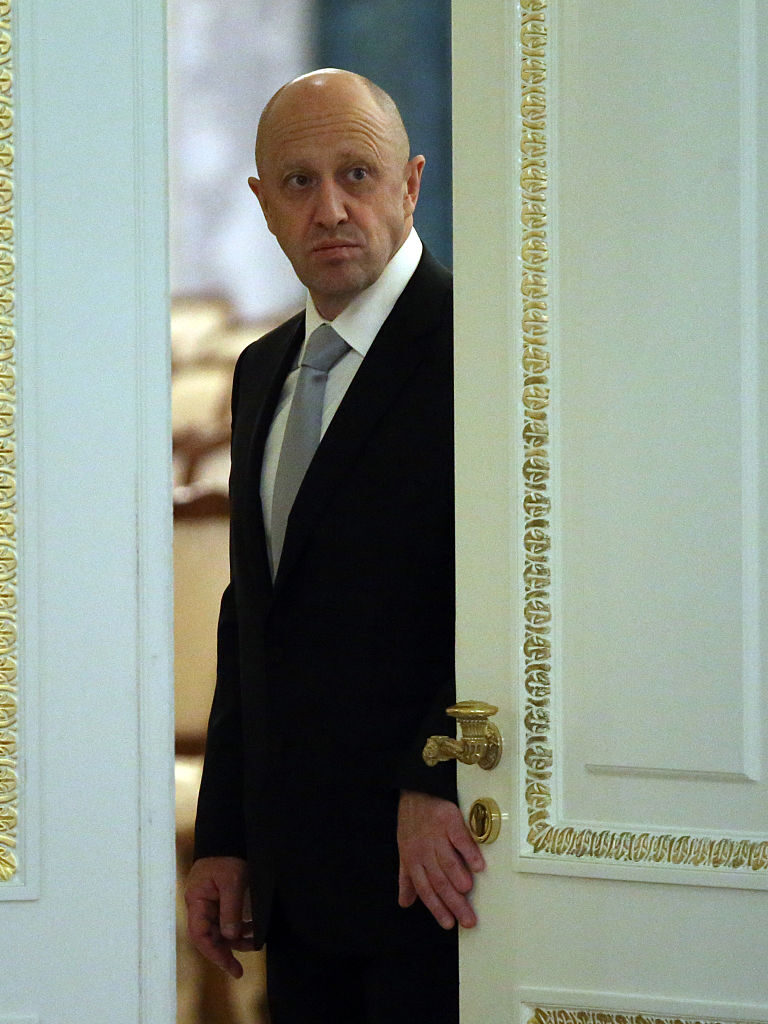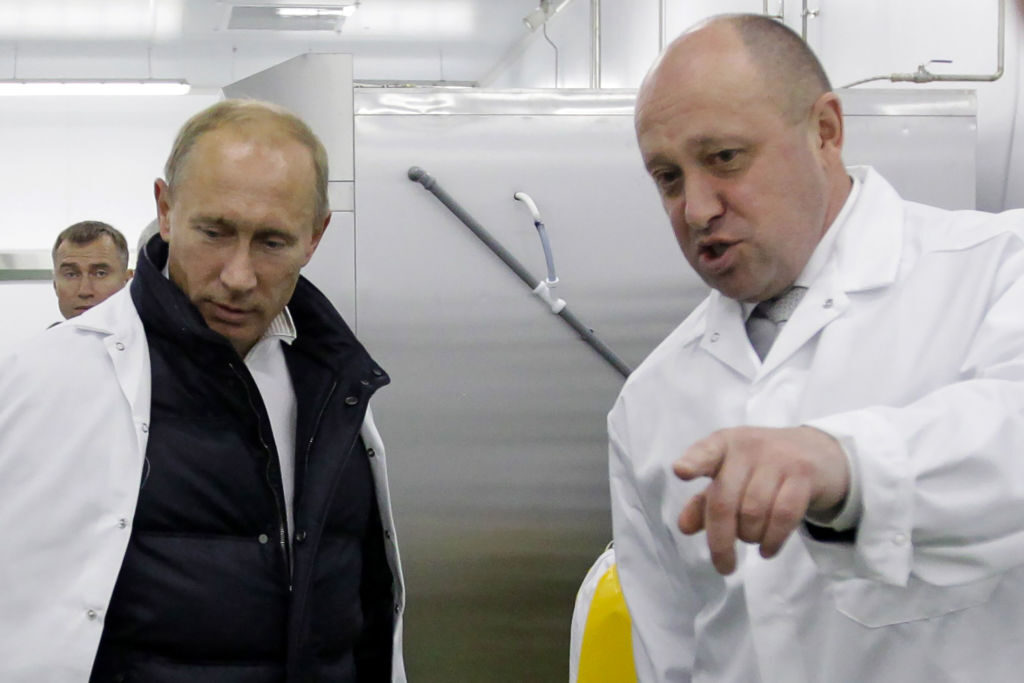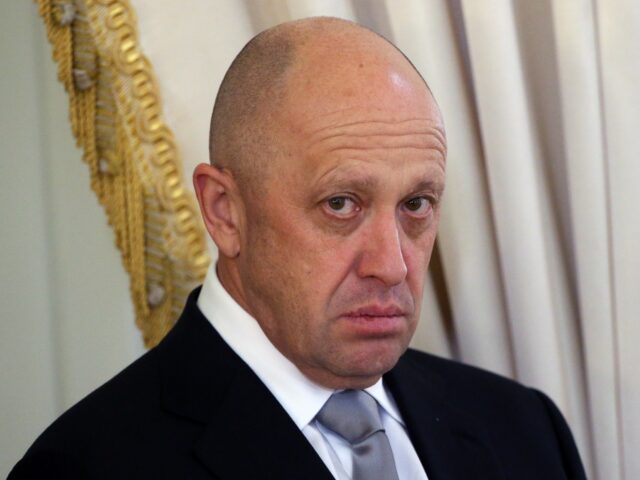Multiple Russian news outlets, including the government-tied Tass news network and the newspaper Kommersant, reported on Monday that the head of the Wagner Private Military Company (PMC), Yevgeny Prigozhin, continues to face a criminal case for attempting an “armed mutiny” against the Russian Defense Ministry.
Prigozhin – whose Wagner paramilitaries have for years engaged in operations beneficial to Moscow in Syria, the Central African Republic, and, most recently, Ukraine – issued a dramatic declaration on Friday evening that his forces, disillusioned with the Russian Defense Ministry, would leave Ukraine and head into Russia, challenging the Defense Ministry’s leadership. Prigozhin claimed to have 25,000 fighters with him and initially targeted the city of Rostov-on-Don, home to an important Russian defense headquarters, before announcing an alleged “march for justice” into Moscow.
That march abruptly stopped on Saturday, reportedly at the intervention of leftist Belarusian dictator Alexander Lukashenko. Reports indicated that the government of strongman Vladimir Putin had agreed to drop charges against Prigozhin in exchange for an end to the uprising and Prigozhin leaving Russia, but the parties involved offered few details; Prigozhin himself has been largely silent since Saturday, but reportedly ordered his forces to return to Ukraine. No reports have confirmed his arrival in Belarus.

File/Russian billionaire Yevgeniy Prigozhin attends Russian-Turkish talks in Konstantin Palace in Strenla on August,9, 2016 in Saint Petersburg, Russia. President of Turkey is having a one-day visit to Putin’s hometown. ( Mikhail Svetlov/Getty Images)
The Kremlin, through top Putin spokesman Dmitry Peskov, confirmed the agreement on Saturday and vowed, giving “the word of the president of Russia,” that Prigozhin would be allowed to safely depart to Belarus. The Russian government would also not prosecute Wagner forces that followed Prigozhin back into Russia, reports claimed.
Russian news outlets cited unidentified “sources” within the Russian government on Monday to claim that Prigozhin had not been forgiven and prosecutors were proceeding as if the investigation into the Wagner chief over his uprising was still in vigor.
“The criminal case against Prigozhin has not been closed. The investigation is continuing,” an alleged source in the Russian Prosecutor General’s Office told the Tass news agency.
Similarly, Kommersant reported that the Russian Federal Security Service (FSB) had not ended its proceedings against Prigozhin. That newspaper’s source claimed that “insufficient time has elapsed” between the case being opened and the Russian government reportedly agreeing to shut it down, leaving open the possibility that its continued existence was a result of bureaucratic inertia rather than Putin actively continuing to seek Prigozhin’s arrest.
The crime of armed mutiny carries a minimum sentence of 12 years in prison in Russia and a maximum of 20.
The Moscow Times noted that two other Russian outlets, Interfax and RIA Novosti, also reported that the charges remain open.
If Moscow seeks Prigozhin’s arrest, it remains unclear whether or not Belarus would comply with an extradition request. Lukashenko is one of Putin’s closest allies on the international stage and has enthusiastically supported the ongoing invasion and colonization of parts of Ukraine. The dictator’s government has also, however, used his role in brokering the alleged Wagner deal to elevate his status and geopolitical relevance; Russia immediately walking back its commitment to let Prigozhin go would undermine Lukashenko’s perceived dealmaking skills.
Prigozhin, who founded the Wagner PMC, had for months complained through videos on his Telegram profile that, in his estimation, the Russian Defense Ministry was grossly mismanaging the “special operation” to oust democratically elected Ukrainian President Volodymyr Zelensky. In a particularly scathing video published in May, Prigozhin predicted that Putin’s regime “could fucking lose Russia” and spark a 1917-esque “revolution” if national discontent over the war continued to grow.

File/Yevgeny Prigozhin shows Russian Prime Minister Vladimir Putin his school lunch factory outside Saint Petersburg on September 20, 2010.( ALEXEY DRUZHININ/SPUTNIK/AFP via Getty Images)
“First the soldiers will stand up, and after that – their loved ones will rise up. There are already tens of thousands of them – relatives of those killed. And there will probably be hundreds of thousands – we cannot avoid that,” Prigozhin said at the time.
On Friday, Prigozhin said in another video that he was turning his troops, which he claimed numbered about 25,000, out of Ukraine towards Moscow. Prigozhin emphasized that his movement was a challenge to Russian Defense Minister Sergei Shoigu, not Putin himself, adding, “this is not a military coup.” Prigozhin said that the move was necessary after an alleged Defense Ministry attack on Wagner forces in Ukraine, which he claimed killed 2,000 mercenaries.
“Those who destroyed our lads, who destroyed the lives of many tens of thousands of Russian soldiers, will be punished. I ask that no one offer resistance,” Prigozhin reportedly said, according to a translation by NBC News.
Prigozhin also dismissed the entire military operation in Ukraine as an unnecessary war meant to boost Shoigu’s profile.
“The war was needed … so that Shoigu could become a marshal,” he accused.
The Russian government dismissed the claims as “entirely unfounded.”
“Amid the seriousness of the situation and the threat of escalation of confrontation in the Russian Federation the FSB has opened a criminal case into the fact of a call for an armed rebellion on the part of Yevgeny Prigozhin,” the FSB announced on Saturday in response to the videos.
Prigozhin’s forces peacefully seized Rostov-on-Don in the early morning hours of Saturday. Prigozhin himself was last seen departing Rostov “to the cheers of bystanders” on Saturday, according to the Moscow Times.
Putin himself has kept a distance from the developments. The president appeared on national television on Saturday night using strong words to condemn Prigozhin – words likely difficult to walk back even in the face of any Lukashenko-brokered agreement.
“Actions that threaten our unity represent apostasy against our people, from our comrades-in-arms, now fighting at the front. This is a stab in the back of our country and our people,” Putin told the Russian people. “Such a blow was dealt to Russia in 1917, when the country was waging the First World War – but victory was stolen from it. Intrigues, squabbles, politicking behind the backs of the army and the people turned into the greatest shock, the destruction of the army and the collapse of the state, the loss of vast territories.”
“Everyone who deliberately embarked on the path of betrayal, who prepared an armed rebellion, embarked on the path of blackmail and terrorist methods will suffer inevitable punishment and answer both before the law and before our people,” Putin promised.
The U.K. Telegraph newspaper reported on Sunday, citing British intelligence, that Wagner leaders agreed to the Lukashenko deal in part because Russian intelligence agents threatened their families. British agents also reportedly did not believe Prigozhin’s claim to have invaded Russia with 25,000 people, estimating the Wagner forces to have been closer to 8,000 men.
The Russian state propaganda outlet Sputnik reported on Monday that, in an apparent attempt to prevent similar incidents in the future, the Russian Duma is working on legislation to more heavily regulate mercenary groups such as Wagner.
Follow Frances Martel on Facebook and Twitter.

COMMENTS
Please let us know if you're having issues with commenting.